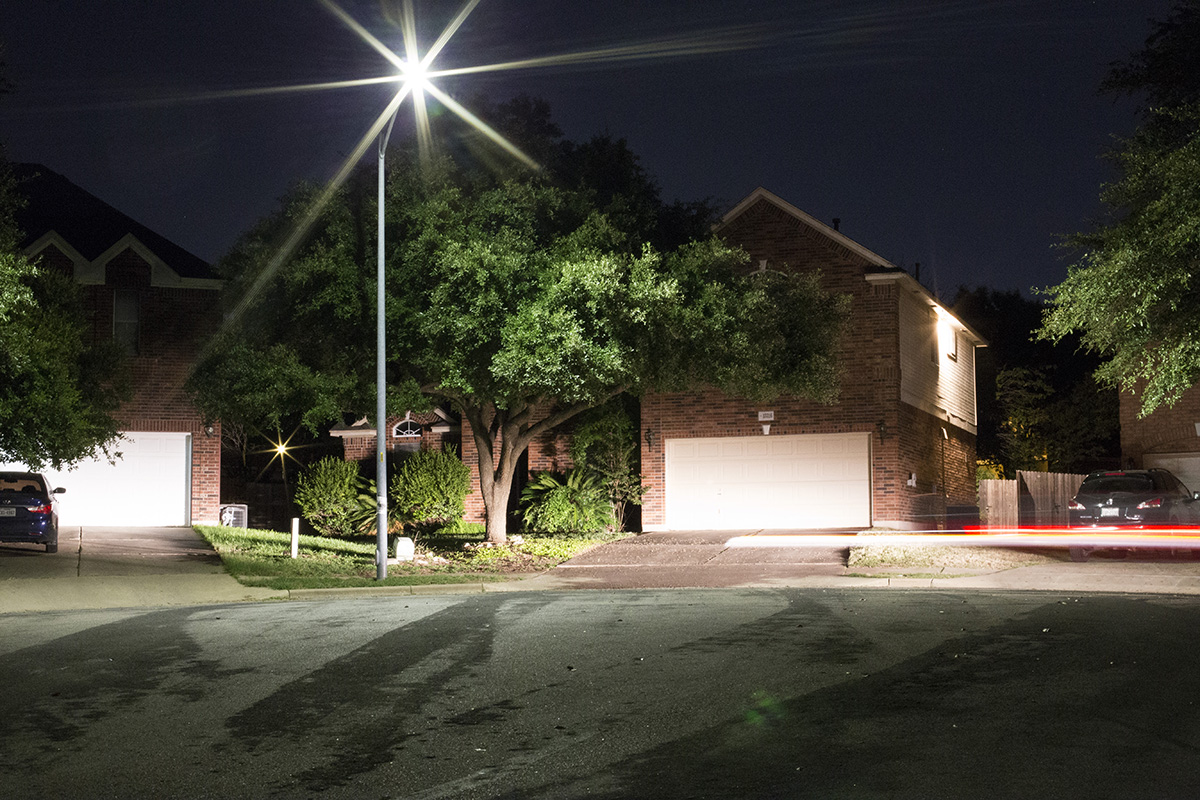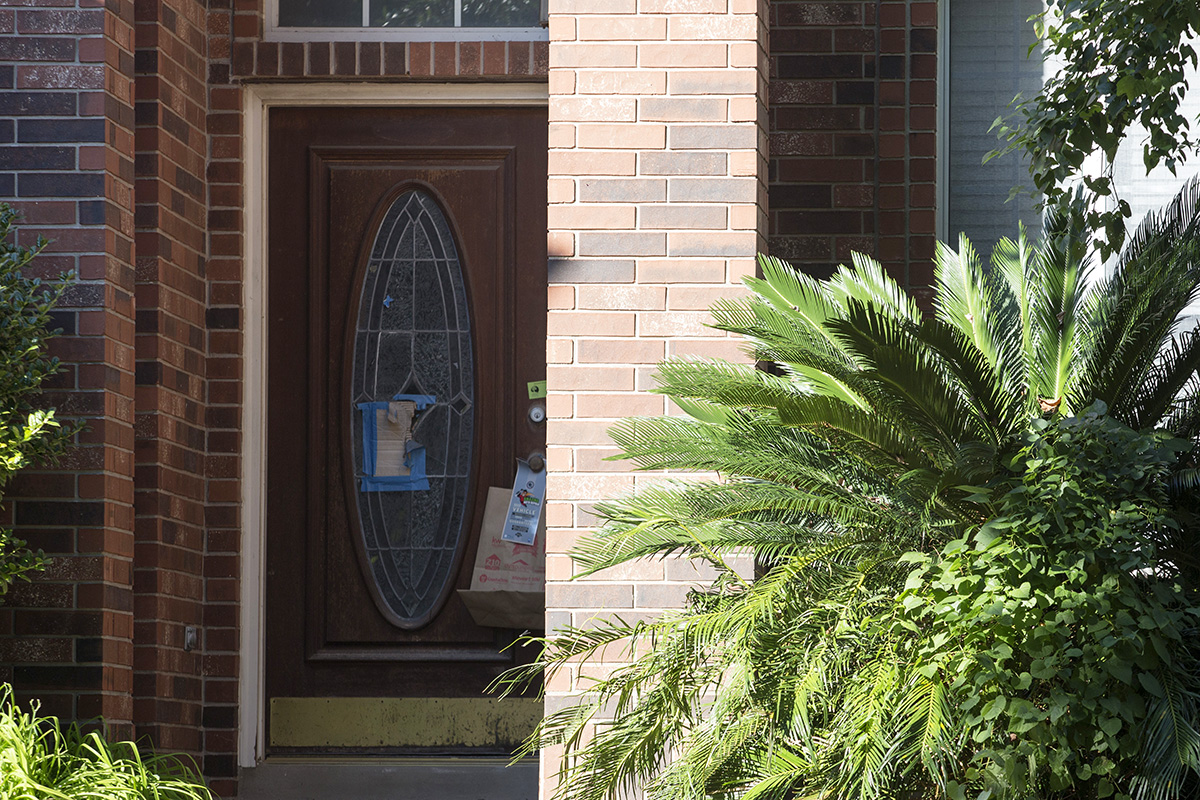Legislature May Address HOA Foreclosure Issues in Upcoming Session
By Hojun Choi
Reporting Texas

Home in North Austin, TX that got reposessed by the bank due to unpaid Home Owners Association fees. Olivia Lauren Anderson/Reporting Texas
The Texas Legislature may make another run in the 2017 session at curbing the powers of homeowner associations. The likely focus: restricting the ability of associations to hit homeowners who commit even minor violations of community rules with attorney fees that can reach the tens of thousands of dollars and potentially lead to foreclosures.
State Rep. Rene Oliveira, D-Brownsville, the chairman of the House Committee on Business and Industry, said his committee began looking into homeowner association issues this past summer at the request of Speaker Joe Straus, R-San Antonio.
Oliveira said in an email to Reporting Texas that in the past several sessions, the committee “has debated many bills where people felt homeowners associations had overstepped their bounds. For example, people complained when some HOAs banned political signs in people’s yards. They complained when some HOAs banned flying the American flag in front a houses. They complained when some HOAs would not permit solar panels to be put on houses. The list goes on and on.”
The committee will make its report before the 85th Legislature begins on Jan. 10.
Not all subdivisions have homeowner associations, but where they do exist, the associations set and enforce rules ranging from yard maintenance requirements to where people can display signs or put their trash cans. Property owners pay dues to the associations, which also maintain public areas.
Fines for violating the rules can start small but snowball with late fees and, if the association sues delinquent homeowners, attorney fees. The associations also can seek foreclosure on owners who are overdue on fees and fines.
How often the owners lose their homes in foreclosure is a matter of conjecture. Texas Homeowners for HOA Reform, which operates in Houston, compiled a list of lien foreclosure cases pursued by property owners associations in Harris County from 2010 through early 2011. According to the data collected by the nonprofit, the county dealt with an average of a hundred such cases every month.
Bill Davis, a real estate attorney from Dripping Springs, has helped clients who find themselves overwhelmed by the attorney fees and face threats of foreclosure from their associations.
“When one side can invent a fee out of thin air, it doesn’t take long for it to happen,” Davis said.
According to Travis County court records, one of Davis’ clients was fined 16 times in less than two years for “lot maintenance” issues, as well as being charged when the association removed a tree from his yard and fined him for violating the rules on placement of trash containers. His monthly assessment was $37.
While most of the fines ranged from $25 to $50, they added up to about $4,000.
The association took the man to court. With late fees and attorney costs, the bill rose to more than $23,000. In March 2015, Davis said, the association filed for foreclosure on the man’s house, and the judge has not ruled in the case. His client could not be reached for comment.
“The lawyers for the association admit that he’s behind on zero assessments, but they still want to foreclose,” Davis sad. “For what? For a visible trash can and because they cut down a tree that they had no right to cut down in the first place.”
The Community Associations Institute, a national lobbying group for the associations, has 35,000 individual and association members nationwide and a chapter in Texas.
Dawn Bauman, senior vice president of governmental and public affairs at the institute, said cases of unreasonable attorney’s fees are “pretty isolated circumstances” and should not undermine the positive impact of HOAs.
Bauman said when people don’t pay their assessments, the homeowners who follow the rules have to pay for maintaining the neighborhood. The associations and assessments, Bauman said, contribute significantly to protecting property values and maintaining the quality of a neighborhood.
Elizabeth Waters of Denton told Reporting Texas that she incurred almost $1,780 in unpaid association fines and late fees for unpaid dues. When the association sued her and won, the amount grew to almost $3,500, including attorney fees.
“I was paying my assessments, but I noticed that they were also charging me for late fees,” Waters said.
Waters said she had skipped several dues payment and failed to respond to letters about late fees because she was recovering from health problems.
“The original amount wouldn’t have broken me,” Waters said. “It was the fees that they added on that I couldn’t handle.”
Essex Management, which manages Waters’ HOA, did not respond to several requests for comment from Reporting Texas.
Waters approached the National Homeowners Advocate Group, based in Richmond, which helped negotiate a fee waiver of $879.06, but Waters said she and the association remain at odds over the mechanics of the payment.
Harvella Jones, president of the organization, said it educates homeowners on the laws that govern property owner associations. The group has provided resources to homeowners across the country, she said.
“We need state oversight; we need to be protected,” Jones said. “We tried to make that happen in the past, but the people against the changes — they have more people than we’ve got, and they have more money than we have.”
David Kahne, a Houston real estate attorney, told Oliveira’s committee at a June hearing that the current system is heavily influenced by property management companies and lawyers who represent homeowner associations.
“It’s not that the homes get foreclosed; it’s that the associations use that ability to leverage collecting attorney’s fees,” Kahne said.

Home in North Austin, TX that got reposessed by the bank due to unpaid Home Owners Association fees. Olivia Lauren Anderson/Reporting Texas
One solution, Kahne told the committee, would be to allow lawsuits for unpaid fines and assessments to be filed in local justice of the peace courts instead of county district courts. Homeowner associations could file such cases without using a lawyer, reducing the cost.
Davis, the Dripping Springs lawyer, said Kahne’s idea might not be the best solution.
“If you don’t have attorneys going in there, you’re going to have management company employees filing these lawsuits,” Davis said. “They’re not bound by any code of ethics; they’re not bound by any disciplinary rules that govern the practice of law.”
“I do not believe there is any amount of reformation that can fix the fundamental structural flaws of these things,” he added. “I want to see them gone.”
The Legislature has failed in the past to address the attorney fee issue.
In the 2015 session, state Rep. Roland Gutierrez, a San Antonio Democrat, filed House Bill 1335 to curb attorney fees. It did not get out of the Business and Industry Committee.
In 2011, state Sen. Royce West, D-Dallas, filed Senate Bill 142, which would have created guidelines for payment plans so homeowners could take care of overdue fines and assessments. It also would have banned foreclosures based on unpaid attorney fees.
“I think the Legislature needs to prohibit it,” West said.
The bill died on the House floor.
Bauman, of the Community Associations Institute, rejected the notion that state laws allow attorneys and representatives of associations to take advantage of the system.
“I have not been made aware of any system that has found attorneys, management companies or any agent of a community association responsible for inappropriately collecting fees for their service,” Bauman said.
In cases of high attorney fees, she said, “It’s a situation that sounds terrible, but usually involves someone who is not interested in living within the rules of their neighborhood.”
“If some of these owners decide they don’t want to pay, then they should sell their home and go to a place where they don’t have to pay or where those assessments are handled in a different way,” she said.